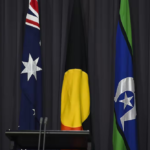Beware of Dr Google
Associate Prof Megan Munsie says it is incredibly important to make sure you get the facts before you pursue any form of treatment and don’t rely on the internet for medical advice.
Let’s face it. We all do it. As soon as we want to know more about something, we pull out our smart phones or reach for our computer and use our favourite search engine to access information online.
Never has it been easier to do your ‘research’. But when it comes to our health, and particular new developments in medicine, should Dr Google be the answer?
Having heard about stem cells and the promises that these cells may hold for regenerative medicine, many Australians are searching online to see if these cells can help them or their loved ones. Simply type in stem cells and the illness or condition that you are interested in, and in a matter of seconds a vast list of links to impressive looking websites will appear. But which websites should you visit? Which sites are reputable? Which are just paid advertising?
According to a recent report by the Australian Institute, more than a third of Australian Internet users are unaware that search engines display paid advertising, with an even higher proportion not aware that the ranking of the sites is influenced by advertising and not simply on relevance.
When it comes to stem cell therapies, the issue of online advertising is particularly problematic. While researchers are making significant progress using stem cells for a variety of different conditions, with many clinical trials underway to test various approaches, we are not yet at a stage where we are able to safely treat all the conditions that we one day hope to be able to.
However, click on some of these links and you will be taken to very professional looking websites offering ‘promising’ stem cell treatments in Australia and overseas. These sites are effectively selling hope with little or no medical or scientific evidence to back up their claims – particularly around safety. These unproven, highly experimental treatments also aren’t cheap with prices ranging from $9,000 to $60,000 per treatment and patients are often encouraged to consider multiple treatments.
So what should you do? By all means use the enormous power of the Internet to get informed, but make sure you take the information you glean to your doctor and discuss what options are really feasible for you. Your doctor will be able to help you put the information from Dr Google into context.
While it is tempting to take the advice from clinic’s promoting the treatment – particularly when you feel as though you have no other options – just remember they maybe selling a promise and Caveat Emptor or ‘Let the Buyer Beware’ has never been more apt.
For more information on experimental stem cell treatments and questions you should ask of providers please visit A closer look at stem cell treatment and the Stem Cells Australia website.
Associate Prof Megan Munsie is a scientist who has combined her extensive technical expertise in stem cell science with an interest and understanding of the complex ethical, social and regulatory issues associated with stem cells in research and in the clinic. A/Prof Munsie is currently the Head of the Education, Ethics, Law & Community Awareness Unit at the ARC funded Stem Cells Australia initiative where her position is jointly funded by the University of Melbourne and Monash University. A/Prof Munsie regularly provides advice and information to Australian researchers, academics, politicians, media, patient advocacy groups and community members on stem cell science and associated issues. She is a member of an international research team that is exploring community expectation in relation to stem cell science and in particular stem cell tourism and has developed several educational resources for the public and health professionals on stem cells. In addition to having worked for over fifteen years in the Australian stem cell field, A/Prof Munsie also has more than ten years experience as a clinical embryologist in IVF clinics around Australia.












